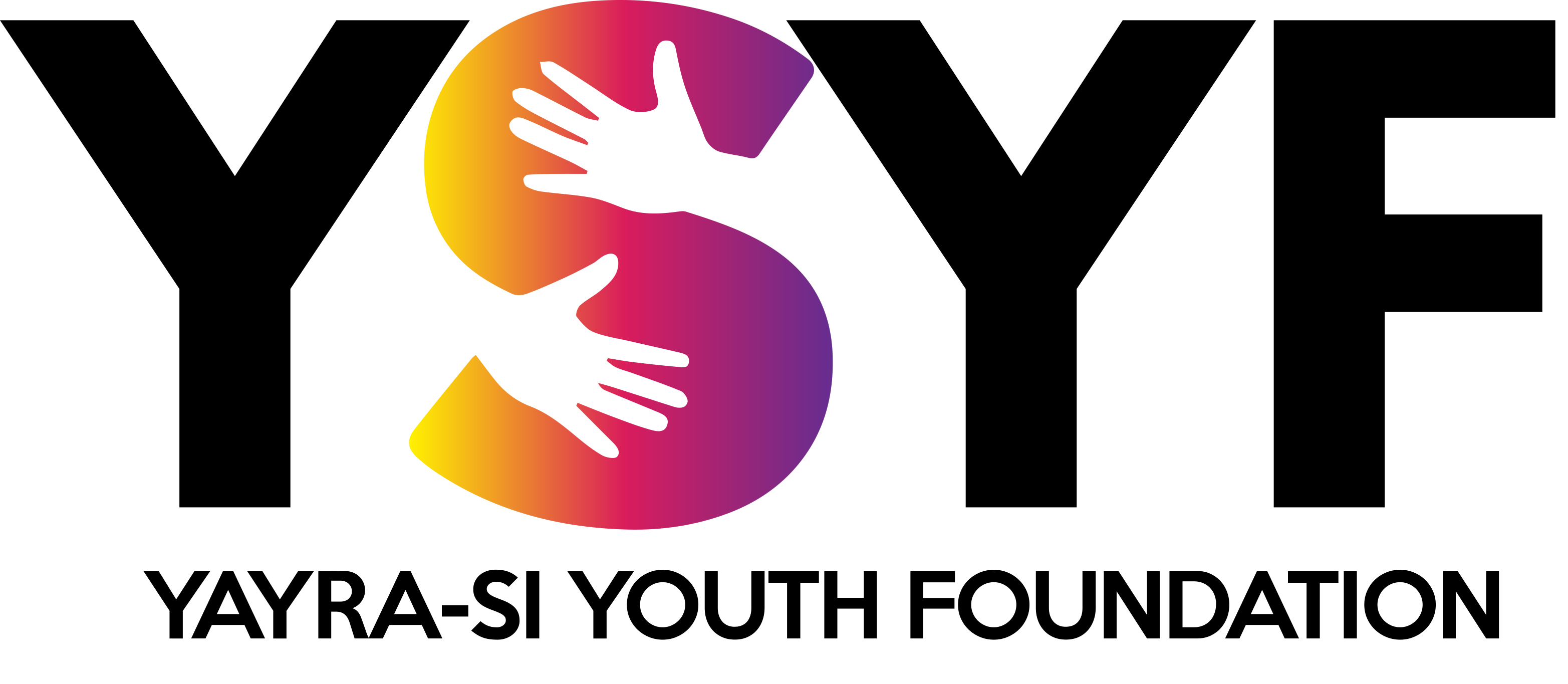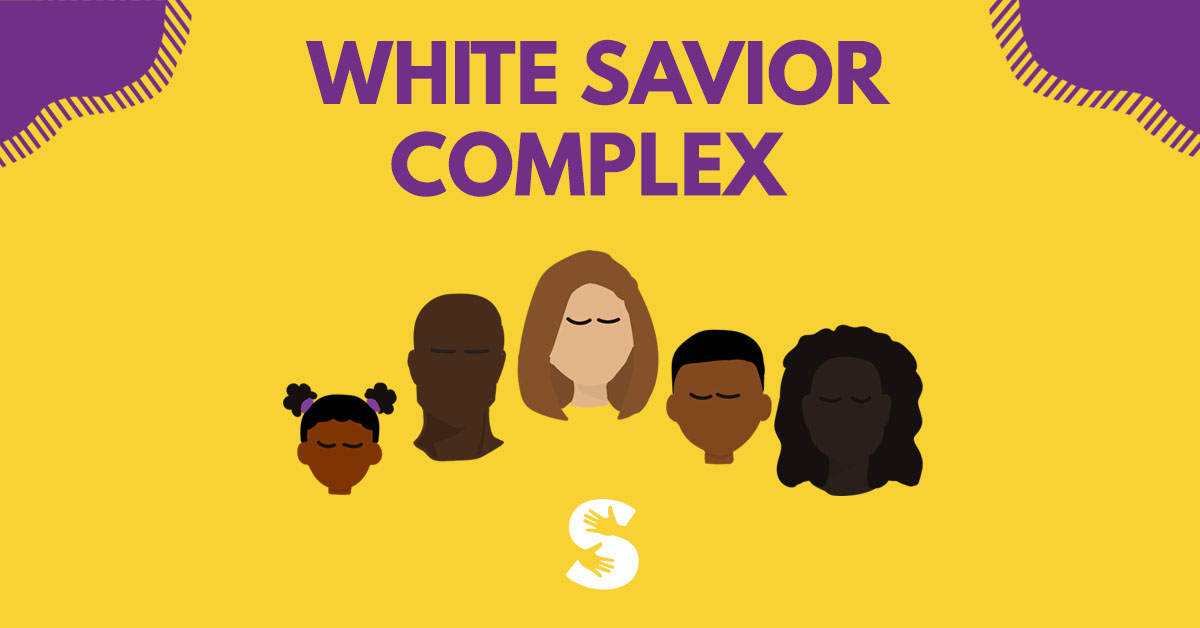
UNDERSTANDING THE WHITE SAVIOUR COMPLEX
Who is White Saviour?
The term white saviour refers to a white person who helps non-white people in a self-serving manner.
The White Savior Complex is “The idea that socially privileged individuals possess, simply by virtue of their position, some unique ability or power to help less-privileged people in ways they’re unable to help themselves.” (Straubhaar, 2015). It manifests itself in many spaces including film, print media, disaster relief, education, policy, politics, development work and more.
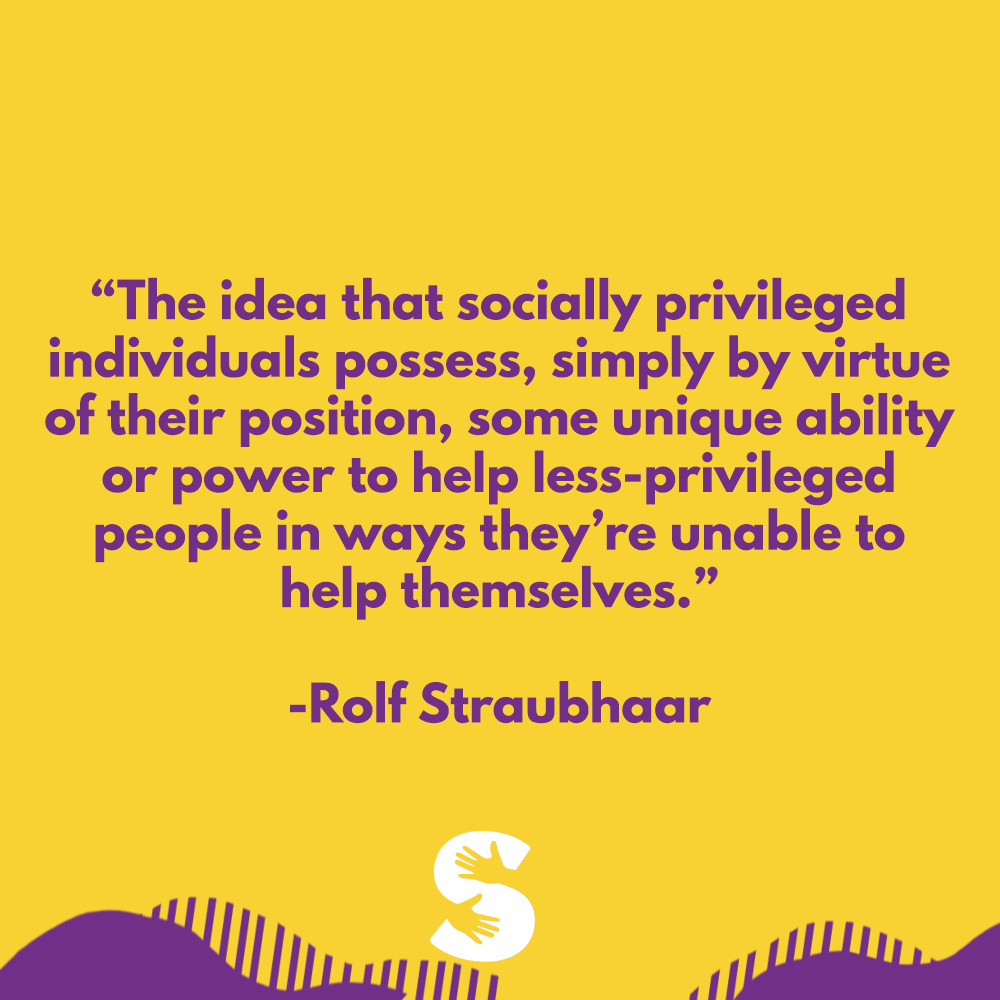
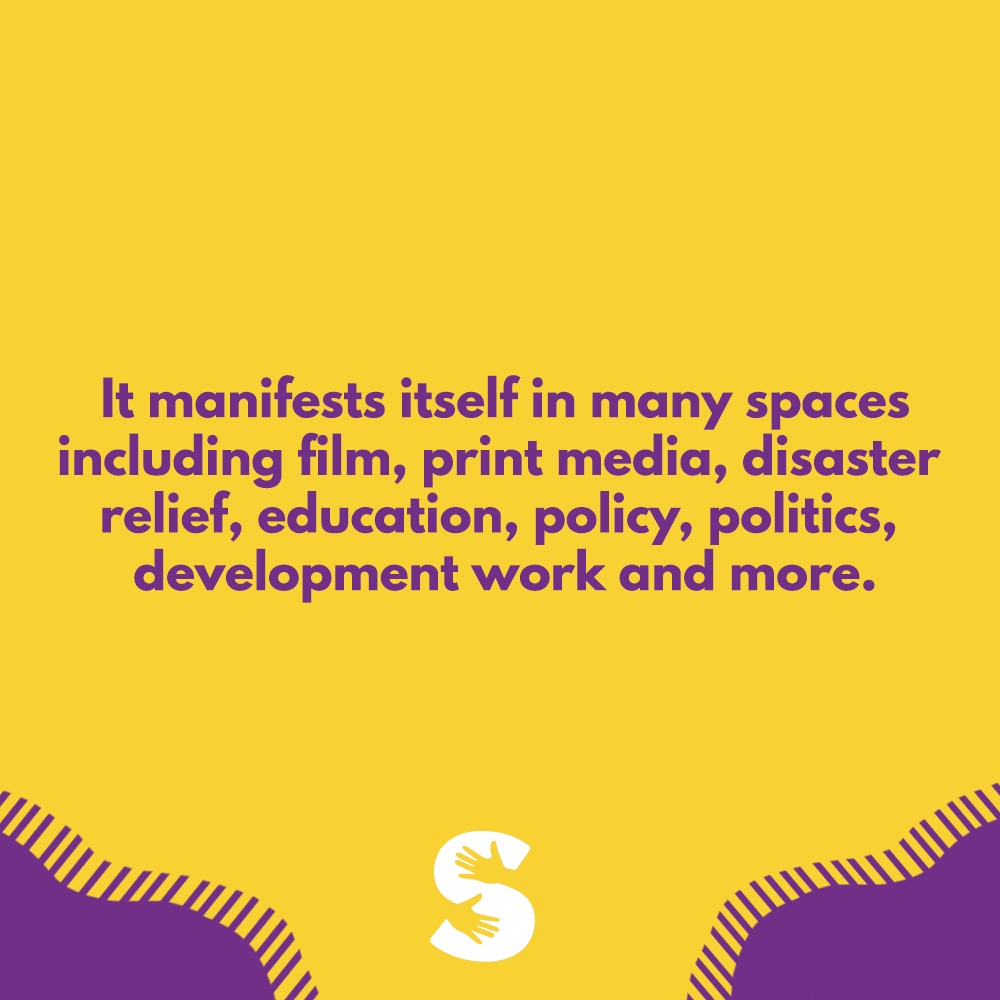
White saviours participate in and perpetuate the narrative that Africa and other Global-South countries reek of poverty and lack the potential for development without western aid and influence, which has been proven to not be true. “The White Savior Syndrome has the tendency to render people of color incapable of helping themselves. Any progress or success tends to result from the success of the white individual, which suggests that escaping poverty or ignorance happens only through the savior’s intelligence” (Cammarota, 2011).
Though a white saviour might claim to have only good intentions to help the poor, they also tend to believe that others need to be saved by the Westerner (who is often a white individual) with the right expertise, ideologies and experience.
However, this problematic ideology is not exclusive to White people only. It is important to note that the “White Savior Complex “is the logical result of a racist, colonialist, capitalist, hetero-patriarchal system setting us up against each other” (Flaherty, 2018, p.18). Therefore, anyone who works in development in the West, is capable of perpetuating this trope and exhibiting that same attitude towards communities in the Global South, even though they themselves might be a Black, Indigenous, or other Person of Color (BIPOC). While many BIPOC may not even be aware that they are propagating this trope, it is important for all individuals working in development and aid to reflect on the ways in which they may/may not engage indigenous people of the community, and the power they hold.
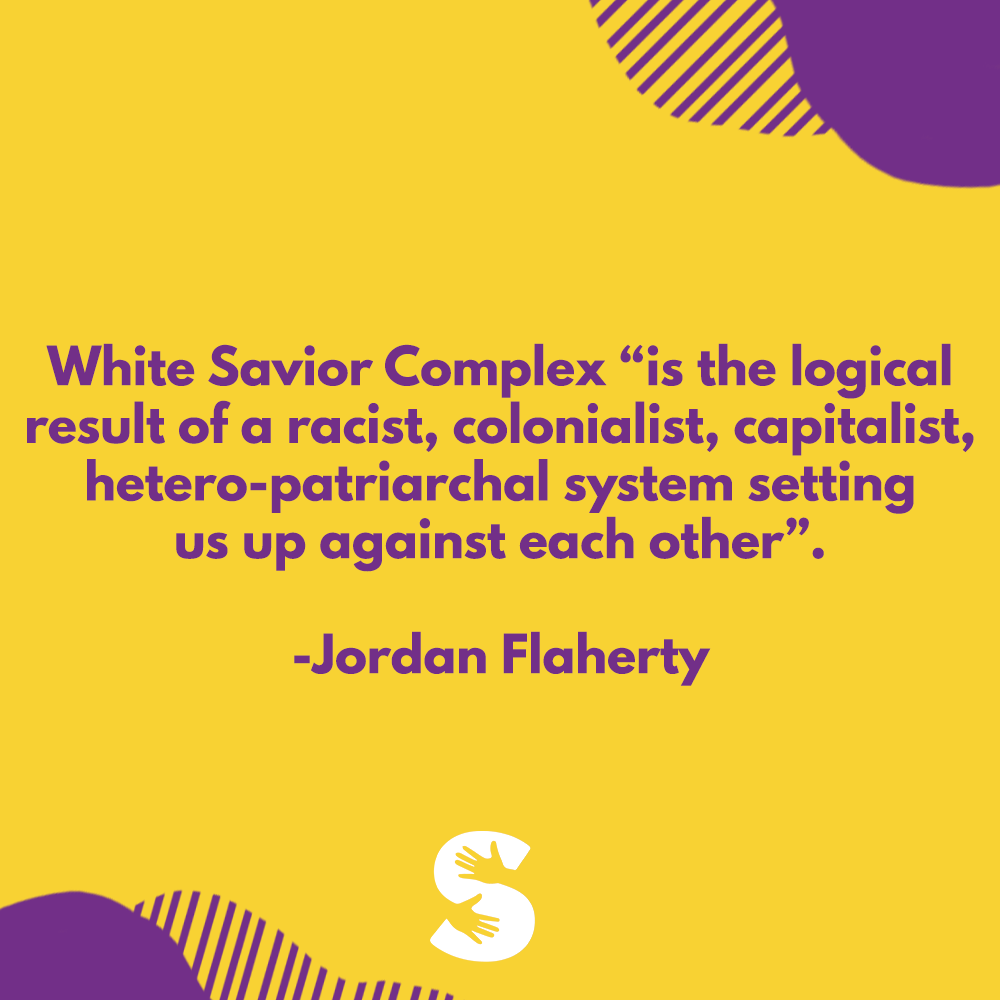
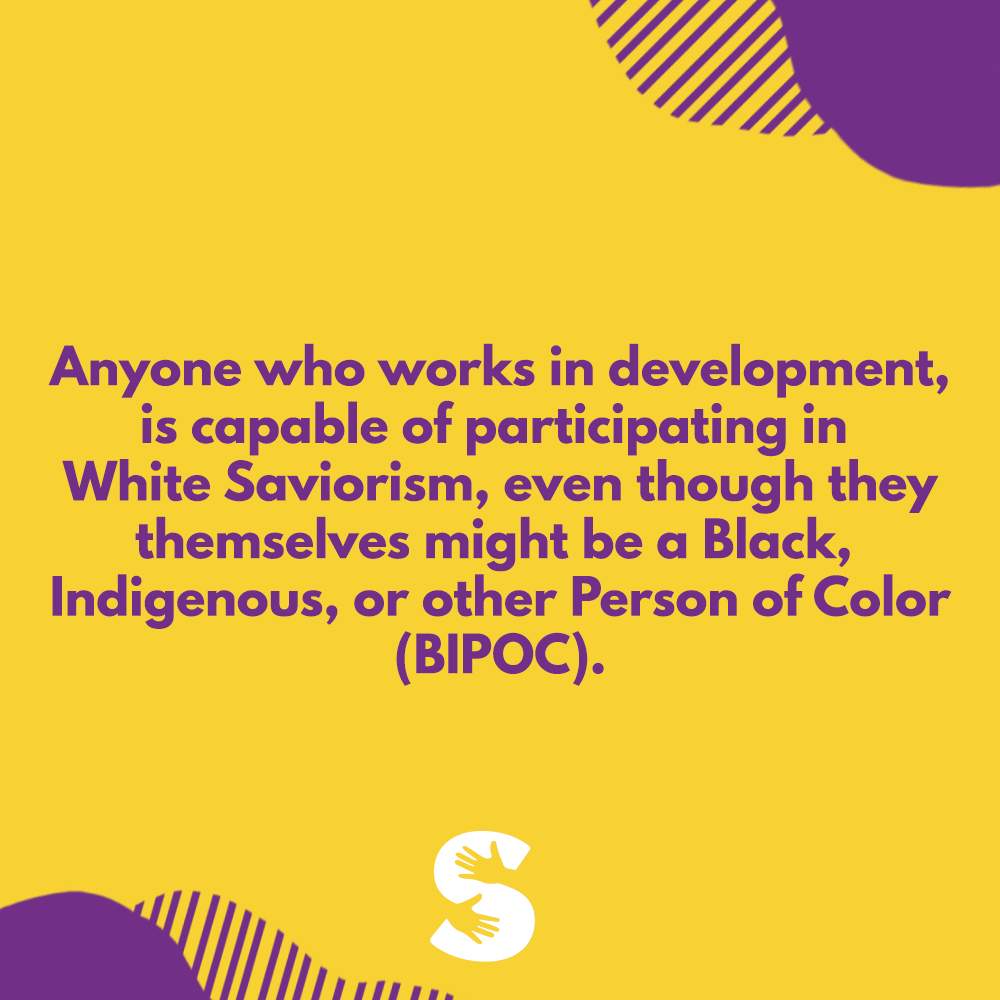
They are numerous consequences of the white saviour complex, and a few are as follow:
1. A white saviour complex leads to development work rooted in progressing the West at the expense of the vulnerable and less fortunate.
2. A white saviour complex encourages approaches and methodologies that rob African and other Global South countries of their resources in the name of “development aid.”
3. It prevents a mutual exchange of values and participation in development work; since “the experts” swoop in with their answers and expertise while failing to include local leaders, beneficiaries and stakeholders.
4. It leads to paternalism: specifically making decisions for others because of the inherent belief that they don’t know better, rather than empowering and building local capacity. It makes the Global West the hero rather than empowering the Global South.
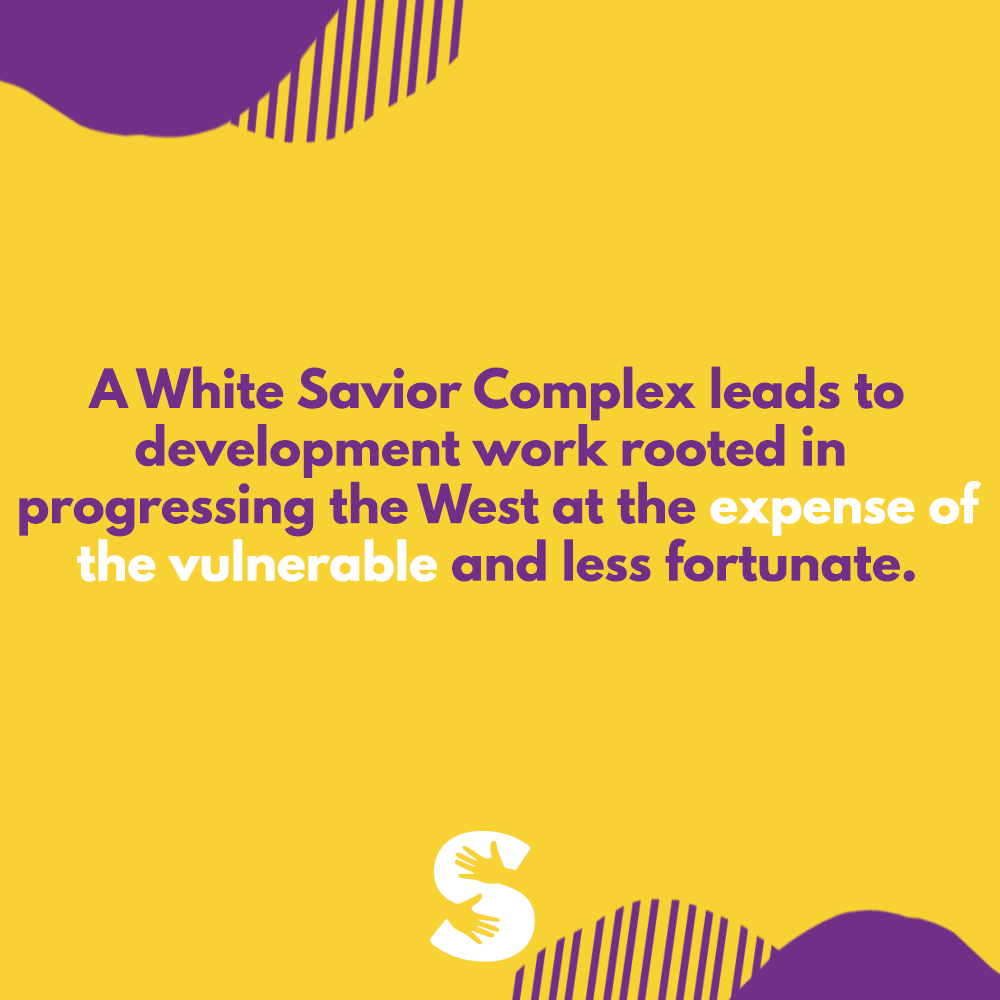
What role do we play
We must commit ourselves to the task of understanding the impact of systemic racism in development work and begin to challenge it in our everyday decisions. It is important to recognize that development work is rooted in colonial ideals of Western supremacy and superiority, especially in the Global South. Historically, Westerners have used development as a colonial tool of bringing “civilization” to indigenous peoples in the Global South. They operated under the ideology that Africans needed to be saved from their savage cultures, and backward way of thinking.
It is imperative that we do not impose western ideals of societal progress and economic growth, in non-western communities. Indigenous knowledge should take precedence in any development work. The indigenous people of any community should be consulted over the matters that concern them. As Teju Cole states, “If we are going to interfere in the lives of others, a little due diligence is a minimum requirement” (Cole, 2012). Simply put, we need to decolonize the practices and ideas that have traditionally framed development and aid.
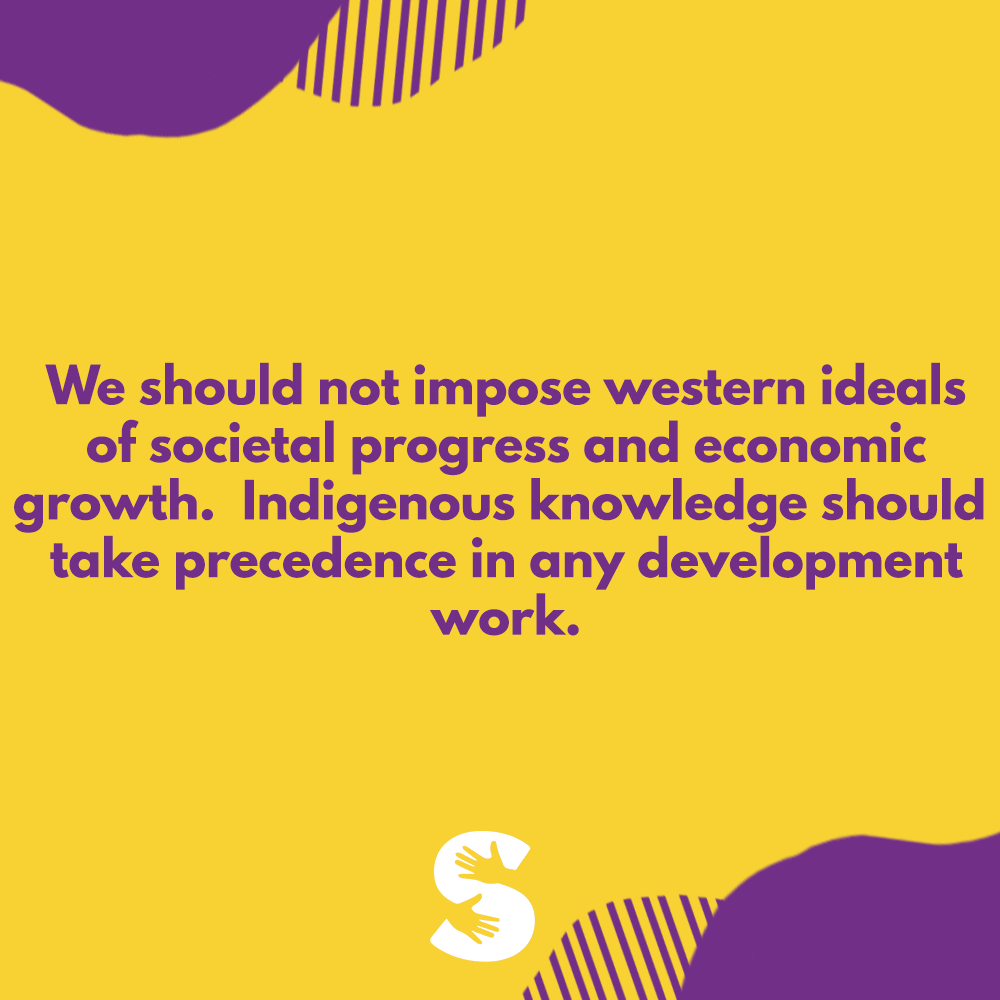
This process begins with you and I.
When we become self-aware of our roles in this, we are able to identify this trope and begin to question the motive behind the actions that we take to “support” underserved communities globally.
The White Saviour Complex is a Disease that Many Must Recover from.
Citations
- 1. Cole, Teju. (2012, March 21). The White-Savior Industrial Complex. The Atlantic. Retrieved from https://www.theatlantic.com/international/archive/2012/03/the-white-savior-industrialcomplex/254843/
- 2. Flaherty, Jordan. (2016). No More Heroes: Grassroots Challenges to the Savior Mentality. Chico, CA: AK Press.
- 3. Straubhaar, R. (2015, August 15). Will you commit class suicide with me? Retrieved April 08, 2018, from https://www.opendemocracy.net/transformation/rolf-straubhaar/will-you-commit-class-suicide-with-me
